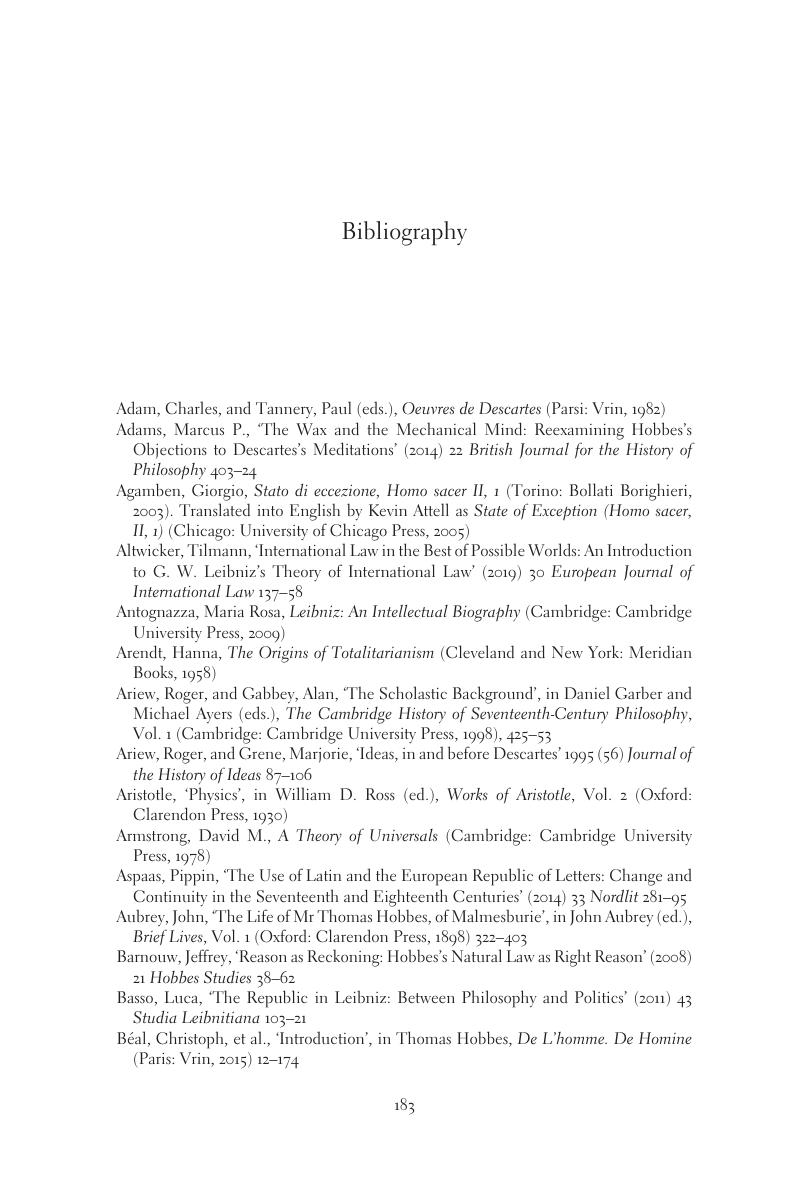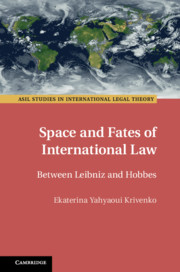Book contents
- Space and Fates of International Law
- ASIL Studies in International Legal Theory
- Space and Fates of International Law
- Copyright page
- Dedication
- Contents
- Note on Uses of Leibniz’s and Hobbes’s Works and Abbreviations
- Introduction
- 1 Science and Law in the Seventeenth Century
- 2 Space
- 3 The Idea of Universals and Human Cognition
- 4 Law
- 5 Intermezzo
- 6 Space(s) of International Law
- Conclusions and the Way Forward
- Bibliography
- Index
- References
Bibliography
Published online by Cambridge University Press: 20 August 2020
- Space and Fates of International Law
- ASIL Studies in International Legal Theory
- Space and Fates of International Law
- Copyright page
- Dedication
- Contents
- Note on Uses of Leibniz’s and Hobbes’s Works and Abbreviations
- Introduction
- 1 Science and Law in the Seventeenth Century
- 2 Space
- 3 The Idea of Universals and Human Cognition
- 4 Law
- 5 Intermezzo
- 6 Space(s) of International Law
- Conclusions and the Way Forward
- Bibliography
- Index
- References
Summary

- Type
- Chapter
- Information
- Space and Fates of International LawBetween Leibniz and Hobbes, pp. 183 - 196Publisher: Cambridge University PressPrint publication year: 2020



